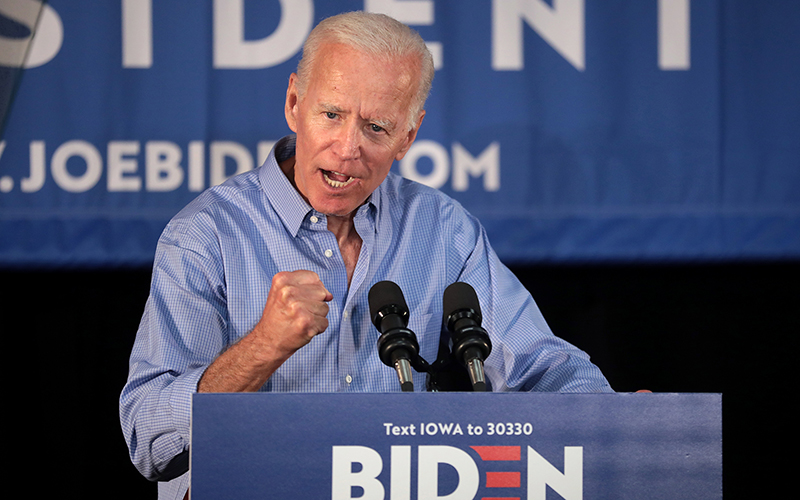
Coming out of the Arizona primary, former Vice President Joe Biden has emerged as the clear Democratic frontrunner ahead of Sen. Bernie Sanders. (Photo by Gage Skidmore/Creative Commons)
PHOENIX – This week’s Democratic presidential preference election in Arizona was no contest, as voters clearly favored Joe Biden over Vermont Sen. Bernie Sanders. Biden also won Illinois and Florida Tuesday night, prompting Sanders to announce he’s assessing his candidacy.
As of 4:45 p.m. Thursday, the most recent totals from the Arizona Secretary of State’s Office showed Biden with 43% of the vote, compared with Sanders’ 31%. More than 540,000 ballots were cast, including 234,585 for Biden and 169,733 for Sanders, the office said.
Moe Vela, a former senior adviser to Biden during his eight years as Barack Obama’s vice president, said he wasn’t particularly surprised.
The results, he said, are “a continuation of patterns and trends across the nation that I think reflect an electorate that’s looking for somebody they can trust, that’s looking for somebody that has steady leadership in these times of challenge and crisis. They’re looking for somebody (who) can bring them that sense of comfort, that predictability, that security – and I think Joe Biden reflects those characteristics at this time.”
Vela, who’s now the CEO of a global business development consulting firm, said he also believes Sanders’ core ideology is not what voters are seeking in November.
“It is fair to say that this concept of socialism that Bernie Sanders has been peddling for a long long time has excited a young base of his, but they’re not coming out in droves the way he said they were going to,” he said. “You cannot win in November, especially against this particular incumbent, you cannot beat him without a strong and broad coalition.”
Faiz Shakir, campaign manager for Bernie 2020, noted that the campaign has three weeks to regroup before the next primaries and caucuses in Alaska, Wyoming and Hawaii.
“Sanders is going to be having conversations with supporters to assess his campaign,” he said. “In the immediate term, however, he is focused on the government response to the coronavirus outbreak and ensuring that we take care of working people and the most vulnerable.”
To win the Democratic primary, a candidate must achieve 1,991 delegates. Biden now has 1,181 delegates and Sanders has 885, according to NPR.
Although the Democratic primary isn’t over, the field is less crowded now. Rep. Tulsi Gabbard, D-Hawaii, dropped out Thursday and gave her support to Biden.
It has been a remarkable March for Biden, who had slumped in the polls after being considered an early favorite. Before the Feb. 29 South Carolina primary, Biden had not won a presidential primary in three campaigns for the White House. He’s now 810 delegates away from the nomination.
-Cronkite News reporter McKenzie Sadeghi contributed to this report from Washington.

